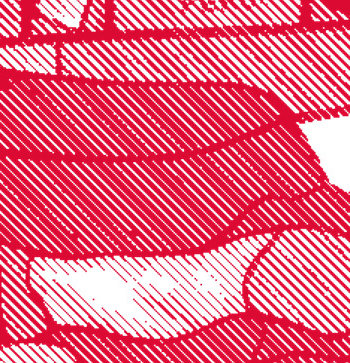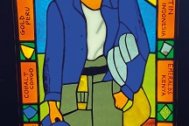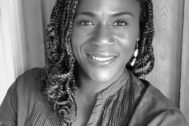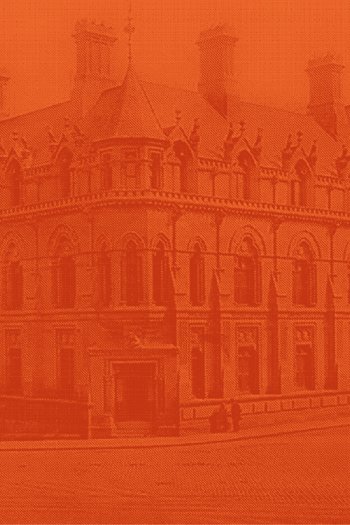You’ll learn:
- That understanding the role of African Caribbean miners is an important recognition of the contribution they made
- How collective progress can be made from a diversity of backgrounds and thinking
- How The Common Room will serve talented and diverse young engineers, BAME engineers, female engineers and all those who work within the realm of science
As a mining heritage enthusiast, a descendant of Jamaican migrants and from a family of industrial workers – my father was an iron foundry worker and a close relative a former coal miner totalling almost fifty years’ hard labour between them – I honour and celebrate the contributions made by people to mining and engineering in the North East, across the UK and beyond, brought to life within the walls of Neville Hall, now home to The Common Room.
Awareness of diversity in the mining industry, now a vibrant part of heritage in the UK and within the various sectors of engineering, can help us recognise that collective progress can be made today, in huge strides, by people of different nationalities, ethnicity, genders, ages, religions and socio-economic status, enriching our understanding of what camaraderie and resilience really means.
My work as a social historian, educator and broadcaster for over twenty-eight years, preserving and sharing diverse heritage through learning activities, publications, exhibitions, community outreach and broadcast media production, now forms part of the work of the Black Miners Museum (See Fig. 3). This heritage project is one I have led as director of Nottingham News Centre since 2013 and it aims to collate and preserve diverse industrial heritage, whilst producing enlightening, educational broadcast media, in all its forms.
Meeting Mining Communities
Over the years, I have had the honour of finding out more about mining heritage by interviewing many former coal miners, their families, colleagues and citizens from former mining communities all over the UK.
I’ve conducted research within mining communities (delving into many an archive, library and social media group) in the North East, East Midlands, Yorkshire, the Welsh Valleys, Kent and Lancashire to name a few.
A passion of mine (excuse the pun!) has been exploring the narratives around miners of African Caribbean heritage, a previous undocumented aspect of UK industrial history, who are believed to have laboured in various coal mines across the North and North East.
These include Dawdon Colliery (County Durham), Ellington Colliery (Northumberland), Algernon Colliery (North Tyneside), Fenwick Colliery (Back- worth), Eccles Colliery (Backworth), Maude Colliery (North Tyneside), Wearmouth Colliery (Sunderland) and Westoe Colliery (South Shields); a cohort of the 230+ coal mines that were situated in the North East of England after nationalisation in 1947.
My experience as a welcomed ‘recruit’ and visitor as part of the Spennymoor Colliery Band at the Durham Miners’ Gala, which was inaugurated in 1871, inspired me to dig deeper. I owe a big thank you to Alderman Andrew Smith, Durham Mining Museum, Alan Mardghum and Redhills Durham Miners Hall for their kind support over the years (See Fig. 4).
Further motivation has come from meetings with many people of the North East, including former miner, Mac Williams, JP and once a Ventilation Officer at Dawdon Colliery.
A Welcome Additional Resource
The Common Room will now be the place where I can further explore this history through its vast archives, which contain an array of rare images, maps, documents, oral histories and digital content.
It is an asset to people wanting to find out more about how engineering fits into the ever-changing world (both virtual and physical) in which we live. It provides a means to engage with different groups and communities, local and global, sharing knowledge about engineering feats of the past and science innovation for the future.
Its newly refurbished premises and facilities house many resources about diverse industrial heritage, which will significantly support schools and educational institutions in their mission to educate people to become better informed, compassionate citizens and will be a benefit to humanity and environmental sustainability.
With a wealth of talented and diverse young engineers, BAME engineers, female engineers and all those who work within the realm of science, The Common Room of the future will be bursting with energy, I am sure!
Like me, I hope many more people will be inspired to find out more about our shared industrial heritage. Learning how we can all apply our individual knowledge for collective good, teamwork and ingenuity, to shape the future of engineering, mineralogy, scientific innovation and much more, will bolster our human quest for connection and collaboration. It will also allow us to shape and sustain a better future for all.
Bio
Norma Jacqueline Gregory was born in Nottingham, England UK in 1969. She is a historian, writer, arts curator, media producer and broadcast contributor.
Her distinguished service within the heritage and arts sectors has made a significant contribution to knowledge around contributions made by people from diverse groups to UK heritage.
Norma is currently director of the Black Miners Museum and works as a heritage consultant for UK and overseas mining museums and industrial related organisations. She aims to support their diverse mining heritage collections and public engagement campaigns in line with the global demand for environmental awareness, climate sustainability impact and positive change within and through the mining sector.




